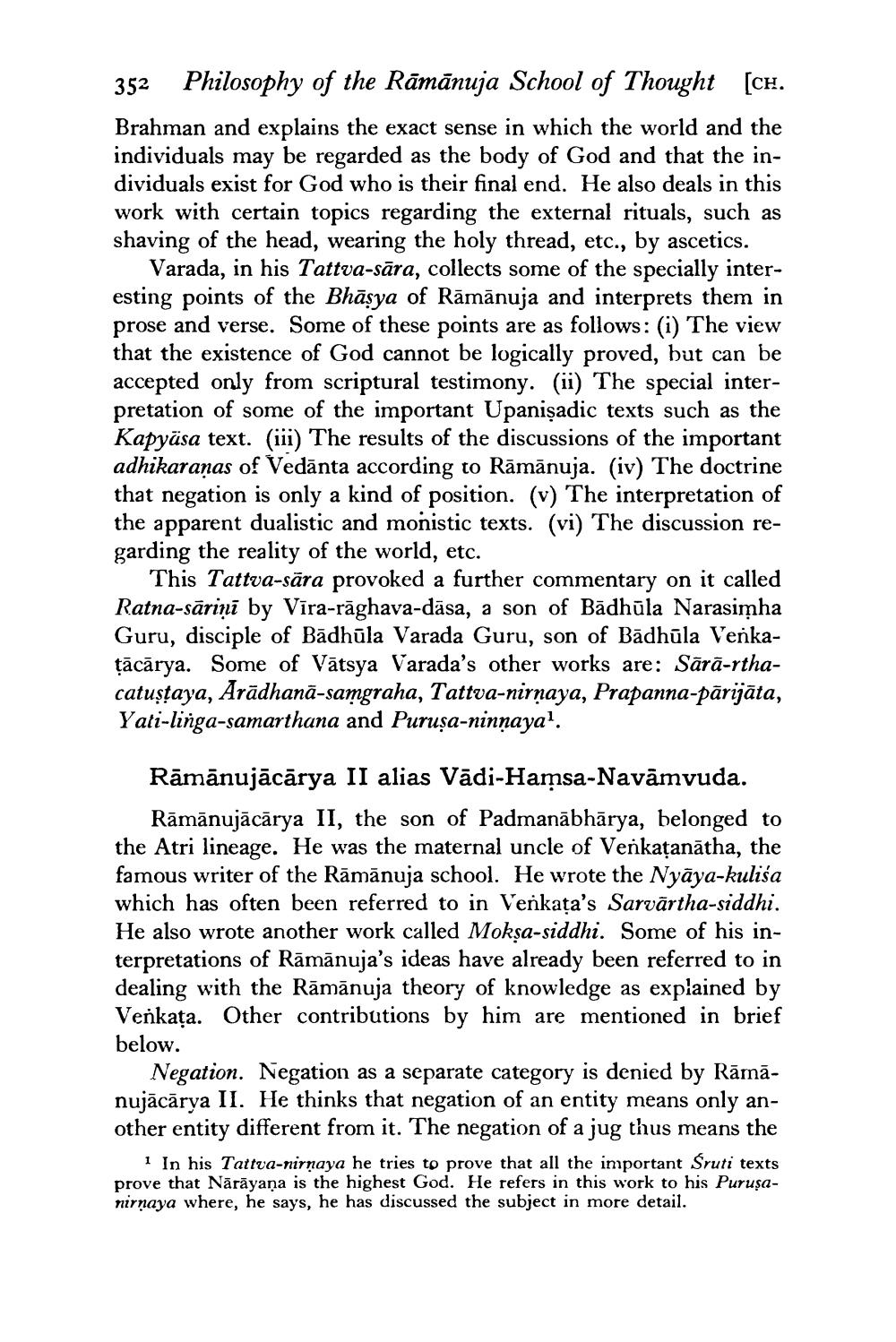________________
352 Philosophy of the Rāmānuja School of Thought [CH. Brahman and explains the exact sense in which the world and the individuals may be regarded as the body of God and that the individuals exist for God who is their final end. He also deals in this work with certain topics regarding the external rituals, such as shaving of the head, wearing the holy thread, etc., by ascetics.
Varada, in his Tattva-sāra, collects some of the specially interesting points of the Bhāşya of Rāmānuja and interprets them in prose and verse. Some of these points are as follows: (i) The view that the existence of God cannot be logically proved, but can be accepted only from scriptural testimony. (ii) The special interpretation of some of the important Upanişadic texts such as the Kapyäsa text. (iii) The results of the discussions of the important adhikaranas of Vedānta according to Rāmānuja. (iv) The doctrine that negation is only a kind of position. (v) The interpretation of the apparent dualistic and monistic texts. (vi) The discussion regarding the reality of the world, etc.
This Tattva-sāra provoked a further commentary on it called Ratna-sāriņī by Vīra-rāghava-dāsa, a son of Bādhūla Narasimha Guru, disciple of Bādhūla Varada Guru, son of Bādhūla Venkațācārya. Some of Vātsya Varada's other works are: Sārā-rthacatusțaya, Arādhanā-samgraha, Tattva-nirnaya, Prapanna-pārijāta, Yati-linga-samarthana and Puruşa-ninnaya?.
Rāmānujācārya II alias Vādi-Hamsa-Navāmyuda.
Rāmānujācārya II, the son of Padmanābhārya, belonged to the Atri lineage. He was the maternal uncle of Venkațanātha, the famous writer of the Rāmānuja school. He wrote the Nyāya-kulisa which has often been referred to in Venkața's Sarvārtha-siddhi. He also wrote another work called Mokșa-siddhi. Some of his interpretations of Rāmānuja's ideas have already been referred to in dealing with the Rāmānuja theory of knowledge as explained by Venkața. Other contributions by him are mentioned in brief below.
Negation. Negation as a separate category is denied by Rāmānujācārya II. He thinks that negation of an entity means only another entity different from it. The negation of a jug thus means the
1 In his Taitva-nirnaya he tries to prove that all the important Sruti texts prove that Nārāyana is the highest God. He refers in this work to his Purusanirnaya where, he says, he has discussed the subject in more detail.




